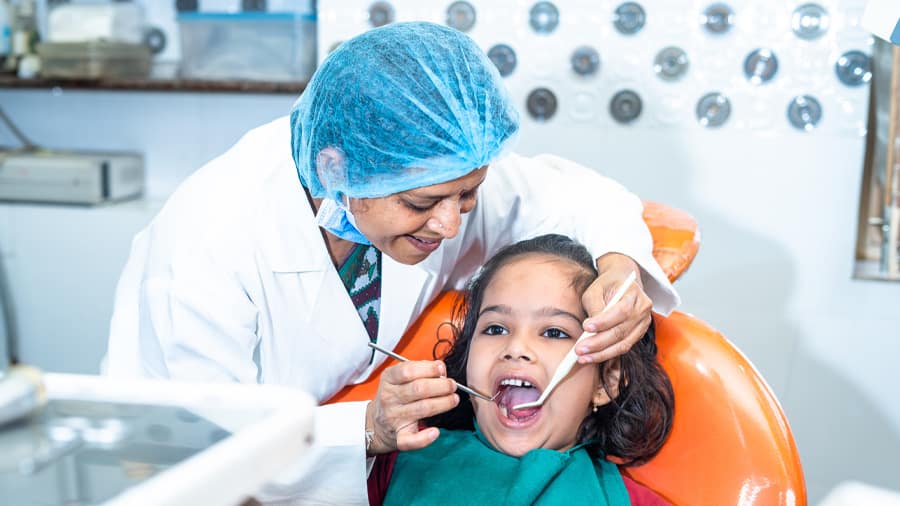What does a Paediatric dentist do?
Paediatric dentists complete a program that emphasises treating children who simply need gentler care and treating children and adolescents with special needs and disabilities. The program involves two to three years of further training after dental school. The program includes working in hospitals and working with children who need more severe dental treatment and emergencies. Paediatric dentists also learn orthodontic teeth-straightening methods. Paediatric dentists work closely with Paediatricians and general dentists. Paediatricians and general dentists will refer select patients to Paediatric dentists. Some Paediatric dentists teach in dental schools and work in hospital training facilities to conduct research to develop better methods of preventing oral health problems in children. The Indian Dental Association lists several resources to learn more about their role.
What benefits do Paediatric dentists offer to children?
Like all dentists, Paediatric dentists focus on oral health and the prevention and treatment of diseases and tooth decay. They also educate parents and other dental professionals on how best to treat children. Also, Paediatric dentists are experts at explaining procedures to children and building trust with their young patients.
The Indian Dental Association lists many methods that Paediatric dentists use to communicate with young patients, including:
- Positive reinforcement - Praise patients for good behaviour, including sitting still and following directions.
- Tell-show-do - A method in which the dentist explains the treatment in words the child will understand, showing them the treatment in a simplified manner, and then starting the procedure.
- Tone - Paediatric dentists may use a friendlier or soothing tone for the patients to build trust and demystify an appointment.
How old are Paediatric dentists' patients?
Paediatric dentists, like Paediatricians, can treat children from birth to college. Suppose a young patient needs dental treatment in a hospital due to a medical condition. In that case, a Paediatric dentist is uniquely qualified. Often, Paediatric dentists will still see patients with special needs past 18 because the dentist knows the patient's dental history, special treatments, and procedure needs.
Why choose a Paediatric dentist instead of a general dentist?
All general dentists receive training from Paediatric specialists in dental school. Some general dentists are more comfortable than others in treating small children and common childhood dental needs. But, if a general dentist is not comfortable treating a young child or special needs child, they can refer them to a Pediatric dentist.
Pediatric dentists perform dental procedures like general dentists. Yet, because of their specialised training, they can handle many difficult behavioral situations.
Children respond to dental visits differently than adults. A child may be anxious or fearful in unfamiliar surroundings. This anxiety can be severe when the patient requires extensive treatment. When a child or a patient with disabilities requires extensive dental treatment, the Pediatric dentist can often provide sedation or general anaesthesia.
How to find the right pediatric dentist
First, ask your child's pediatrician for recommendations. You can also check the Indian Dental Association's child dental center search portal. Ensure you choose a Pediatric dentist that has completed the two- to a three-year program. A Pediatric dentist can help create a lifetime of healthy smiles for your children and ensure positive dental office experiences.
This article is intended to promote understanding of and knowledge about general oral health topics. It is not intended to be a substitute for professional advice, diagnosis or treatment. Always seek the advice of your dentist or other qualified healthcare provider with any questions you may have regarding a medical condition or treatment.
ORAL HEALTH QUIZ
What's behind your smile?
Take our Oral Health assessment to get the most from your oral care routine
ORAL HEALTH QUIZ
What's behind your smile?
Take our Oral Health assessment to get the most from your oral care routine








.jpg)




